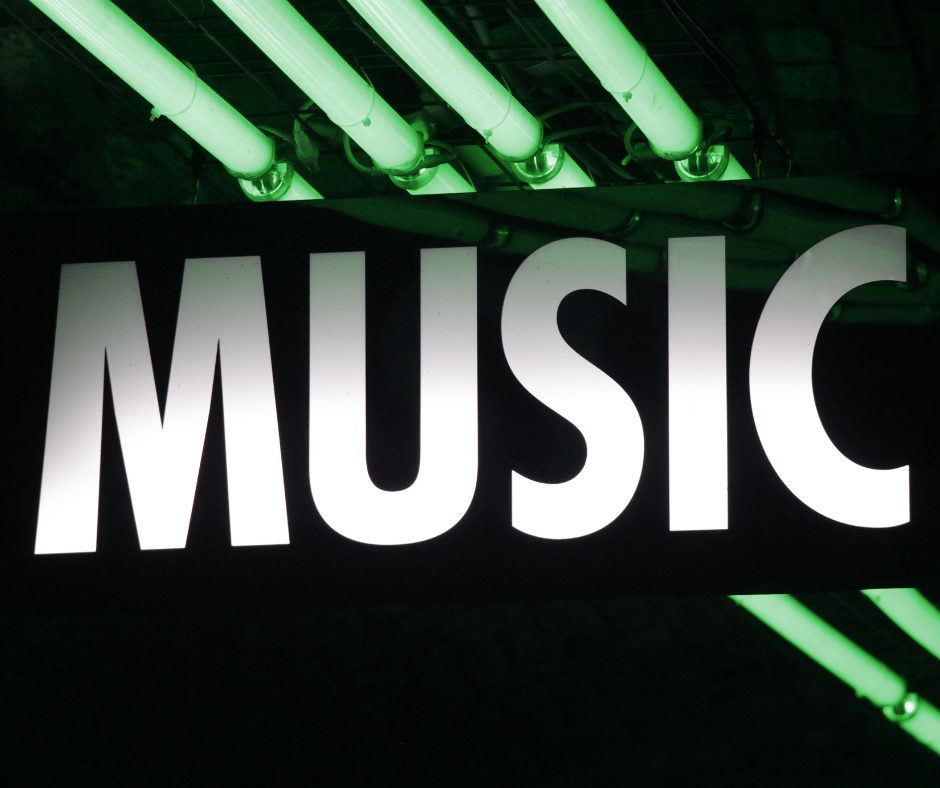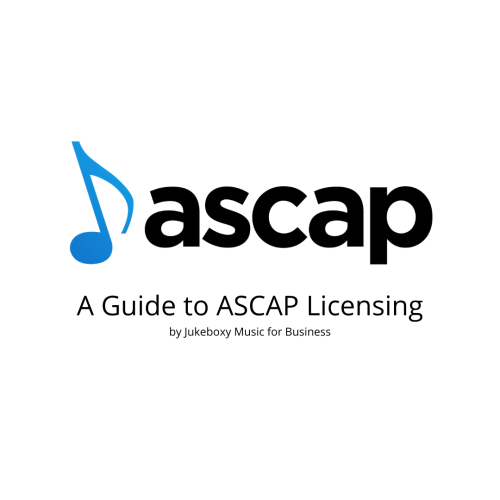
What essentially defines the atmosphere of a café, shop, restaurant, or even a workplace? Music. Most business owners solve the music issue by turning on the radio or playing music through their personal music streaming service or their music playlist on their device. Apart from being illegal, this is unprofessional and possibly not sufficient for achieving the desired effect of creating a pleasant atmosphere. You should not make this mistake; read on.
Background music is a powerful marketing tool in a business. If you own a business, chances are you’re already using music to help your company grow. But, just because you’re already streaming music doesn’t mean you play the fitting soundtrack for your business. There’s a lot you need to know about music to run a successful business, and that’s why we’re bringing it all together in this guide.
Beginner level: How to legally play music in your business?
Not choosing a reliable source of music is the first mistake many business owners make. You need to stop thinking of Spotify right now as your choice of music streaming service in your business! It might be an excellent choice for personal use; however, it was never meant for business use. Your subscription to Spotify does not cover commercial music licenses; it only covers private use licenses. What does that mean? It means Spotify is not legal for use in business establishments. Also, it doesn’t give you complete control over what’s playing, especially if you’re not on-site. YouTube, Pandora, and Apple Music both fall into this category.
When a business chooses to play unlicensed music on their property, there is a potential fine of $150,000 per song played. Yes, you read it right; per song! ASCAP, BMI, GMR, or SESAC are often suing companies for ignoring the Copyright Law and using personal music services without obtaining a Public Performance License (PPL).
When you subscribe to a service like Jukeboxy, the music streaming service designed for businesses, your music will be licensed for commercial purposes. As a result, there is no need to worry about BMI, ASCAP, or others anymore. Moreover, you will be able to control what is playing and when it is playing from the remote control app. Rest assured, you will always have the right ambiance in your store or coffee shop.

Intermediate level: How the cheapest option is usually the most expensive
Suppose you are already aware of the background music licensing law and looking to find the right music service for your business.
A common mistake the business owners make; they tend to choose a business music service that is advertised as less costly than others. The truth is these services eventually become more expensive when you need additional services like; multi-account dashboard, in-store audio messaging, or transfer your own playlist. And, usually, these services have a limited music library, limited technology to meet business needs, and poor customer service.
Taking a few things into consideration can help you decide which music service to get.
- What type of device is required to stream music with your business music subscription? When a provider offers multiple platforms to stream music from, you can eliminate the cost of buying a new device and use the one you already have.
- Are you planning to include in-store audio messaging to play in between songs and advertise upcoming promotions? If you like to reach out to your customers with in-store audio messaging advertisements, choosing a provider that includes the service in their pricing will eliminate additional hidden costs.
- Are you looking to work with a music curator for a branded and custom playlist unique to your brand? Knowing the cost of the music curation service beforehand will help you determine your budget and future expenses.
It will also help if you learn about the streaming audio quality of the service beforehand. Low-quality streaming will not make much impact as higher-quality music streaming, and you may not achieve the atmosphere you are hoping to create.
While choosing a service for business music streaming, make sure the streaming platform you prefer is available as an app for mobile devices and computers. This way, you can use one of your available devices without worrying about additional costs, such as purchasing the provider’s hardware for music streaming.
Knowing about the costs of extra features such as dedicated support, audio message option, or curated playlists should also be considered when deciding on the background music service.
Choosing a cheaper subscription may seem appealing, but you may not be getting the services you need. Additional services can easily double your subscription fee if you wish to use them. So, a service that appears cheap on the surface turns out to be much more expensive than it would be elsewhere. If you choose a provider, make sure that the monthly subscription fee includes all the additional features and services.
A good example is Jukeboxy, where a monthly subscription fee of $29.99 will get you all the additional services. Such as a remote-control access, extensive music playlist options, in-store audio messaging, multi-account dashboard, multi-account discounts, and a dedicated account representative for quick and easy communication. No hidden costs, no misunderstandings. All in one.
Click here to read more about Jukeboxy features.

Pro level: Finding the best music streaming service that fits your brand
You probably have tried multiple services already or subscribed to the same business background music service for years. However, you are also aware that other services with newer technology and more tools can help you minimize the time spent on music management. And, you are now considering switching from your current subscriber and finding the best music streaming service for your business and your needs.
Knowing that using a commercially licensed business music streaming service saves you thousands of dollars a year and prevents copyright infringement, you are not too worried about the cost of the service.
When searching for a business music solution, asking a few questions would help you eliminate the ones that are not a good match pretty quickly.
- Do they cover all the PROs like ASCAP, BMI, SESAC, and GMR?
- Does the service have an extensive music library?
- Do they have the music genres and soundtracks that are working well for my business?
- Do they update their playlists regularly?
- Is customer service available during my business hours? Or, how easy it is to communicate with the company when I need assistance?
When a provider checks all the items in your list, you should also consider the free trial option. If there is no credit card required during sign-up, you can quickly start trying the service. If the music service is not a good match for your brand, you won’t have to worry about the trial cancellation and a possible charge on your credit card.

However, finding the right service provider is not enough to ensure your business delivers a professional music experience. If you want an outstanding music experience in your retail space, office, or restaurants, here are some tips to consider:
Businesses are all unique
Hence, it would help if businesses chose the soundtrack based on who is frequenting these establishments. For instance, a relaxing mix of music usually works well in reception areas, hotels, spas, and medical offices. While shopping centers, grocery stores, and bars typically provide faster and more engaging music.
Volume matters more than you think
Music should be loud enough for people to hear it, but not so loud that it drowns out conversations. If you install speakers in changing rooms and restrooms, make sure the volume is slightly lower than in the rest of the venue. Speakers near a cash register are not a great idea. You may have difficulty communicating with your customers and prevent a possible cross-selling opportunity. If you are planning to install speakers near a cash register, make sure to stream music at its lowest volume level.
Zone your music
If you have interior and exterior areas, or rooms with different vibes, it might be a good idea to play different kinds of music. Music zoning is where different types of music play in other parts of a store, office, or restaurant to appeal to specific consumers. It is a common practice in business establishments to engage with different clientele. you can read how Jukeboxy manager app covers all these things.
For the acoustics, consider the surfaces
Nothing can make or break the sound of your background music more than room acoustics. Depending on your venue, the sound will differ. What type of surfaces are there: soft or hard? These have a significant impact on the sound distribution than you might think.
One more thing: speaker location is everything. Experimentation is necessary to achieve the perfect sonic effect.

More speakers, more experience
Consider buying more speakers and playing music at a lower volume if you have the budget. The sound will be less intrusive that way. Imagine that the music in your business is like light, and the speakers are like spotlights.
Final thoughts
You need to play music in your business to attract new clients, keep your current client base happy, and remain competitive in a saturated market. Whether you are a business owner or an employee, a good understanding of music streaming can help you reach your goals.
It might seem complicated as it is simply not the same as playing music in your home. There are multiple things to consider before choosing the best business music streaming service for your needs.
However, you can play music in your business like a pro with Jukeboxy in 10 minutes. The service is easy to set up and effortless to start playing the fitting soundtrack for your brand.
Jukeboxy Manager App, which you can download from your device’s app store, helps you manage the music at any time and from anywhere. Within minutes, you can download, set up, and play 45+ million songs from Jukeboxy!
When you get your business’ music right, you will attract more customers and generate more sales. Jukeboxy can be an excellent partner in this endeavor.







